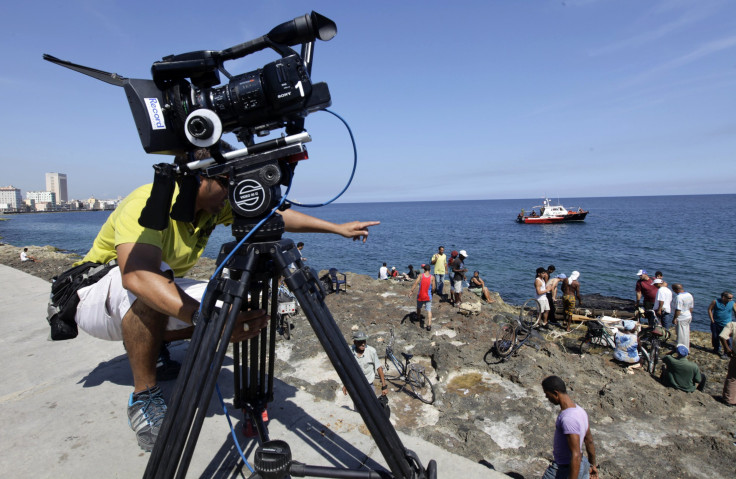
AFP reports that in Cuba, where Brazilian telenovelas have long gripped the imaginations of audiences - and even contributed phrases to the everyday Cuban lexicon -- a new rival is moving in to challenge Brazil's dominance among soap opera viewers. "Doramas," or South Korean telenovelas dubbed into Spanish, appeared on Cuban televisions for the first time earlier this year and have quickly won devoted audiences, with episodes passed from person to person via USB drives in lieu of widespread Internet access (only about a quarter of the population has regular access to Internet, according to official figures).
Many Cubans say they prefer foreign telenovelas to their domestic counterparts because the world they depict isn't as much like the one they inhabit as those shown in Cuban soaps. Indeed, according to what many residents of Havana told AFP, the exoticism of South Korean telenovelas seems to be a main selling point. Yosmely Batista, a 21-year-old who sells copies of films and TV series out of his apartment in Centro Habana, told the service he thought they were successful "because it's so foreign - they hardly ever kiss on South Korean shows!"
The lavish settings where most Brazilian dramas are played out is markedly different from most Cubans' experiences, too. But as blogger Yoani Sanchez noted in a July 2009 post, many Cubans have since 1994 - the year when post-Soviet economic difficulties bubbled up in the "maleconazo," a riot on the Havana seafront promenade -- read their lives through the dramas of Brazilian soaps. The new private-owned diners legalized by the government that year were dubbed "paladars" or palates after a food company created by a protagonist in the telenovela Vale Todo.
"...we saw serials where farmers were reclaiming their land, fifty-year-old women made plans for the future, and reporters from an independent newspaper managed to attract more readers," wrote Sanchez. "The scripts of these dramas have ended up being -- on this Island -- the keys to interpreting our reality, comparing it with others, and critiquing it. Thus, three days a week, I sit in front of the television to read between the lines of the conflicts that surround each actor, because from them arise much of the attitudes that my countrymen will adopt the following morning."
RELATED: Orlando Luis Pardo Lazo, Cuban Opposition Blogger, Talks 'The Cuban Problem', Launches Anthology On Extended Visit
© 2025 Latin Times. All rights reserved. Do not reproduce without permission.




